| Listing 1 - 10 of 15 | << page >> |
Sort by
|
Book
ISBN: 0674065336 0674068742 9780674068742 9780674065338 9780674059900 0674059905 Year: 2012 Publisher: Cambridge, MA
Abstract | Keywords | Export | Availability | Bookmark
 Loading...
Loading...Choose an application
- Reference Manager
- EndNote
- RefWorks (Direct export to RefWorks)
We explain what people think and do by citing their reasons, but how do such explanations work, and what do they tell us about the nature of reality? Contemporary efforts to address these questions are often motivated by the worry that our ordinary conception of rationality contains a kernel of supernaturalism-a ghostly presence that meditates on sensory messages and orchestrates behavior on the basis of its ethereal calculations. In shunning this otherworldly conception, contemporary philosophers have focused on the project of "naturalizing" the mind, viewing it as a kind of machine that converts sensory input and bodily impulse into thought and action. Eric Marcus rejects this choice between physicalism and supernaturalism as false and defends a third way. He argues that philosophers have failed to take seriously the idea that rational explanations postulate a distinctive sort of causation-rational causation. Rational explanations do not reveal the same sorts of causal connections that explanations in the natural sciences do. Rather, rational causation draws on the theoretical and practical inferential abilities of human beings. Marcus defends this position against a wide array of physicalist arguments that have captivated philosophers of mind for decades. Along the way he provides novel views on, for example, the difference between rational and nonrational animals and the distinction between states and events.
Act (Philosophy) --- Agent (Philosophy) --- Causation. --- Causality --- Cause and effect --- Effect and cause --- Final cause --- Beginning --- God --- Metaphysics --- Philosophy --- Necessity (Philosophy) --- Teleology --- Agency (Philosophy) --- Agents --- Person (Philosophy) --- Action (Philosophy) --- Causation
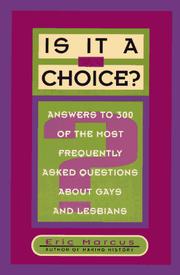
ISBN: 0062506641 Year: 1993 Publisher: San Francisco : Harper,
Abstract | Keywords | Export | Availability | Bookmark
 Loading...
Loading...Choose an application
- Reference Manager
- EndNote
- RefWorks (Direct export to RefWorks)
Fonds Suzan Daniel (FSD)
Book
ISBN: 0060922222 Year: 1992 Publisher: New York : HarperPerennial,
Abstract | Keywords | Export | Availability | Bookmark
 Loading...
Loading...Choose an application
- Reference Manager
- EndNote
- RefWorks (Direct export to RefWorks)
Fonds Suzan Daniel (FSD)
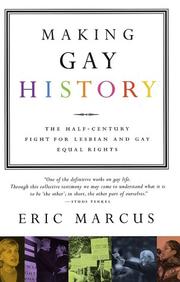
ISBN: 9780060933913 0060933917 Year: 2002 Publisher: New York : Harper,
Abstract | Keywords | Export | Availability | Bookmark
 Loading...
Loading...Choose an application
- Reference Manager
- EndNote
- RefWorks (Direct export to RefWorks)
"From the Boy Scouts and the U.S. military to marriage and adoption, the gay civil rights movement has exploded on the national stage. Eric Marcus takes us back in time to the earliest days of that struggle in a newly revised and thoroughly updated edition of Making History, originally published in 1992. Using the heartfelt stories of more than sixty people, he carries us through a compelling five-decade battle that has changed the fabric of American society.The rich tapestry that emerges from Making Gay History includes the inspiring voices of teenagers and grandparents, journalists and housewives, from the little-known Dr. Evelyn Hooker and Morty Manford to former vice president Al Gore, Ellen DeGeneres, and Abigail Van Buren. Together, these many stories bear witness to a time of astonishing change, as queer people have struggled against prejudice and fought for equal rights under the law." --
Gay liberation movement --- Gay rights --- Lesbians. --- History.
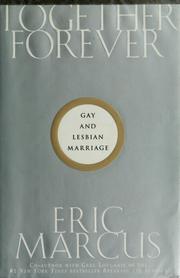
ISBN: 0385488750 Year: 1998 Publisher: New York Doubleday
Abstract | Keywords | Export | Availability | Bookmark
 Loading...
Loading...Choose an application
- Reference Manager
- EndNote
- RefWorks (Direct export to RefWorks)
Book
ISBN: 9781138589308 9781138589292 1138589306 1138589292 Year: 2023 Publisher: New York, NY: Routledge,
Abstract | Keywords | Export | Availability | Bookmark
 Loading...
Loading...Choose an application
- Reference Manager
- EndNote
- RefWorks (Direct export to RefWorks)
"This text examines human sexuality through the lens of psychoanalytic theory and modern ego psychology, which looks at emotional meaning and its organization in symbolic representations of affect as organized by the ego. It starts with an exploration of how symbolic representations are applied to the sensory experience of the body in human sexuality, both in reality and in fantasy. Next, the author delves into the phenomenon of romance as an important self-state in human growth and development. The book concludes with an examination of fetishes and fetish enactments, followed by a discussion of relevant treatments. With its original and fulsome insights into the workings of human sexuality, this book will prove vital for psychoanalysts and psychotherapists in training and in practice, as well as all those seeking to understand human sexual experiences in greater depth"--
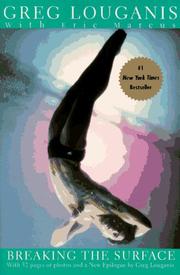
ISBN: 0452275903 Year: 1996 Publisher: New York (N.Y.) : Plume,
Abstract | Keywords | Export | Availability | Bookmark
 Loading...
Loading...Choose an application
- Reference Manager
- EndNote
- RefWorks (Direct export to RefWorks)
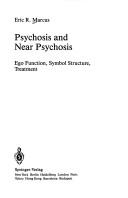
ISBN: 0387977651 Year: 1992 Publisher: New York (N.Y.): Springer
Abstract | Keywords | Export | Availability | Bookmark
Book
ISBN: 1315675854 1317383419 1317383427 Year: 2017 Publisher: New York ; London : Routledge,
Abstract | Keywords | Export | Availability | Bookmark
 Loading...
Loading...Choose an application
- Reference Manager
- EndNote
- RefWorks (Direct export to RefWorks)
Psychoses. --- Psychoses --- Treatment.
Book
ISBN: 9780429958786 Year: 2023 Publisher: New York, New York : Routledge,
Abstract | Keywords | Export | Availability | Bookmark
 Loading...
Loading...Choose an application
- Reference Manager
- EndNote
- RefWorks (Direct export to RefWorks)
"This text examines human sexuality through the lens of psychoanalytic theory and modern ego psychology, which looks at emotional meaning and its organization in symbolic representations of affect as organized by the ego. It starts with an exploration of how symbolic representations are applied to the sensory experience of the body in human sexuality, both in reality and in fantasy. Next, the author delves into the phenomenon of romance as an important self-state in human growth and development. The book concludes with an examination of fetishes and fetish enactments, followed by a discussion of relevant treatments. With its original and fulsome insights into the workings of human sexuality, this book will prove vital for psychoanalysts and psychotherapists in training and in practice, as well as all those seeking to understand human sexual experiences in greater depth"--
| Listing 1 - 10 of 15 | << page >> |
Sort by
|

 Search
Search Feedback
Feedback About UniCat
About UniCat  Help
Help News
News